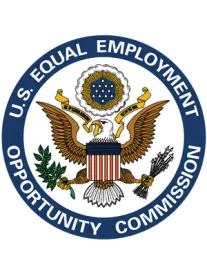Last week, in Mach Mining, LLC v. EEOC, the Supreme Court unanimously ruled that Title VII authorizes judicial review of the EEOC’s efforts to satisfy its statutory duty to conciliate before filing suit against an employer. In the simplest of terms, Title VII requires that the EEOC try to remedy unlawful employment practices through “informal methods of conference, conciliation, and persuasion” before it is permitted to file a lawsuit against the employer.
Mach Mining, LLC arose from an EEOC sex discrimination charge filed against the company by a female applicant who claimed that Mach Mining refused to hire her because of her sex. The EEOC investigated the claim and found reasonable cause to believe Mach Mining engaged in unlawful hiring practices. The EEOC sent a letter to Mach Mining inviting the parties to participate in the conciliation process and stating that an EEOC representative would contact the parties to begin conciliation. Approximately a year later, the EEOC sent Mach Mining another letter stating conciliation efforts failed and proceeded to file a lawsuit against the company.
As part of its defense, Mach Mining argued the EEOC did not conciliate in good faith as required by Title VII. The EEOC responded that its conciliation efforts were not subject to judicial review and its two letters fulfilled its statutory obligation to attempt conciliation before filing suit. The District Court held that it could review the adequacy of the EEOC’s conciliation efforts but granted leave for an immediate appeal. The Seventh Circuit reversed, holding that the EEOC’s statutory duty to conciliate was not reviewable by a court.
The Supreme Court unanimously vacated the Seventh Circuit’s decision holding that a court may review whether the EEOC satisfied its statutory obligation to attempt conciliation before filing suit. However, the Court held the scope of review is narrow, and recognized “the EEOC’s extensive discretion to determine the kind and amount of communication with an employer appropriate in any given case.” Specifically, the Court held that judicial review of the following “and nothing more” will ensure the EEOC complies with the statute:
-
The EEOC must inform the employer about the specific allegation – describing “both what the employer has done and which employees (or what class of employees) have suffered as a result;” and,
-
The EEOC must try to engage the employer in some form of discussion (whether written or oral), so as to give the employer an opportunity to remedy the allegedly discriminatory practice.
There is considerable debate as to whether this decision is a win or loss for employers, or one disguised as the other. On the one hand, the Supreme Court asserted the courts power to ensure the EEOC complies with its statutory obligation to attempt good faith conciliation. On the other hand, in rejecting Mach Mining’s arguments regarding the scope of review, the Supreme Court stated that Title VII does not require a good-faith negotiation. Further, in balancing its power to review against the abundant discretion the law gives to the EEOC, the Court admitted that a “bare-bones review” is all that is allowed and that the EEOC can satisfy its burden by sworn affidavit simply stating it performed its obligations and its efforts failed. The burden is then on the employer to provide credible evidence “indicating that the EEOC did not provide the requisite information about the charge or attempt to engage in a discussion about conciliating the claim.” However, even if an employer successfully proves the EEOC failed to attempt good faith conciliation, the litigation continues and the “appropriate remedy is to order the EEOC to undertake the mandated efforts to obtain voluntary compliance.”
Regardless, the decision is significant particularly in the Seventh Circuit where the EEOC’s Chicago office is among the most aggressive in the country. If nothing else, this decision reminds the EEOC of the limits of its discretion and its responsibility to follow the law in its enforcement of the same.




 />i
/>i

